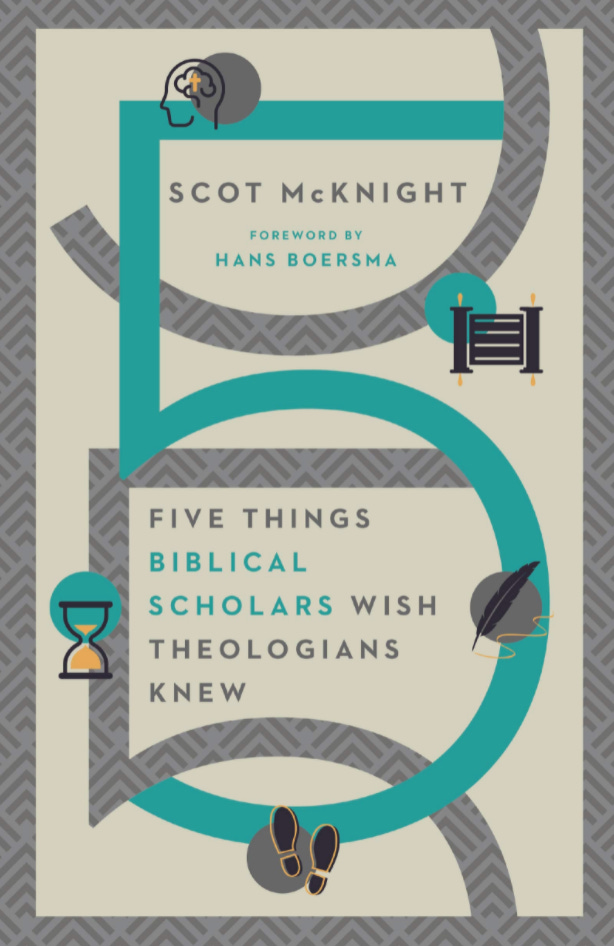I Want You to Know 5 Things
I was nurtured theologically in an approach to exegesis that cut off any evidence after the 1st Century though I learned to “cheat” by grabbing stuff from the Mishnah, Talmud and Tosefta. I also learned it was passable to use Jewish and Greco-Roman texts that were 2nd Century and even later, but only cautiously. To read the NT aright one had to lock oneself down to the 1st Century evidence. Nothing else could infiltrate the thought process.
What was verboten was anything theological from the development of orthodoxy from the 2nd to the 4th Centuries. What was also verboten was bringing in systematic theology conversations or later theologians into any decision about the NT in its context. Barth was fine to read once you were done. Icing on the cake perhaps. Or the sprinkles on the icing, but keep him off the desk until you had your stuff figured out. The same for any theologian, from the Cappadocians and Augustine through Aquinas and Luther and Calvin and Wesley and Edwards and Hodge and Strong and Jenson and whoever else you read. It does not matter how many Bible verses those theologians cited, they were not doing exegesis but systematics.
Exegesis and systematics can be friends, but only at the bar when the day is done.
So someone at IVP – I won’t say who – came up with the nifty idea of getting exegetes and systematicians to talk to one another. Not in a Two Views kind of book where we respond to one another.
No, they came up with the idea of 5 Things Biblical Scholars Wish Theologians Knew and 5 Things Theologians Wish Biblical Scholars Knew.
I wrote the first one.
Hans Boersma wrote the second one.
I have been long fascinated by Hans’ theological studies and have read a number of them cover to cover.
We need this kind of conversation — don’t you think?
We each read the other’s book only after we had written and submitted ours. There’s no sly or subtle disagreements with the other in the books.
We each wrote the Preface to the other’s after we read through the other’s approved manuscript.
Today is not the day to get into the books but instead to hear your answers to these two questions:
What do biblical scholars want theologians to know?
What do theologians want biblical scholars to know?



I don’t have a comment on your questions but I hear a third book in this idea: What Practitioners Wish Academics Knew.
Some of the diagrams in Scot's book are well worth the price of the book. They are game changing, very helpul diagrams/charts